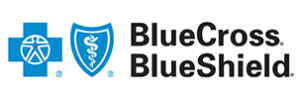Warner Park Recovery Center – Woodland Hills Mental Health







Outpatient treatment programs allow individuals to receive help for their addiction with minimal disruption to their daily routine. You can expect to spend an hour or more in treatment a few days a week. The length and frequency of treatment are heavily dependent on your individual needs and can be worked around your schedule. Those recently exiting a more time-consuming program, like an inpatient program or intensive outpatient program, can transition into an outpatient program as a stepping stone to normal life. This allows you to practice the techniques you’ve learned in real-world scenarios while still maintaining a connection with a professional therapist to help you through the many possible pitfalls you’ll come across in the real world.
A quality outpatient program treats you as a whole person with relationships, responsibilities, and hobbies that can affect your success in recovery. Being in an outpatient program means you’ll have touchpoints every few days to address any new issues that have come up. You’ll then be able to dive right back in and practice the techniques you discussed. Some programs include family sessions that address how your addiction has affected those closest to you and how you can heal as a family unit as you move toward full recovery. This also allows your family to hear the tools and strategies you’re learning so that they can better support you in your recovery process.
This family connection is one of the major benefits of an outpatient program compared to an inpatient one that separates you from family connections. Outpatient programs are typically more affordable than the more intensive alternatives, which is important for those without insurance coverage. Cost should not be a barrier to getting the help you need, and an outpatient program can bridge that gap. Resources like this one can help you understand whether an outpatient program is a right path for you.
Outpatient programs vary greatly based on the needs of the individual. Some consist solely of individual and group counseling sessions that serve as an accountability touchpoint and a time to take time out of the daily routine to focus on recovery. Other programs include medication-assisted detox and more intensive therapy sessions.
At Warner Park, you can expect sessions of at least an hour that take place several times a week. The sessions will serve as a checkpoint to gauge how you’re doing in recovery and identify any stumbling blocks before they lead to anything more serious. This early detection can be critical in helping you stay on track. Early signs of an obstacle are easy to miss when you’re busy with everyday life and not focusing on recovery. That’s where your sessions come in. Identifying and mitigating potential triggers can make a world of difference.
At the outset of the program, you’ll set goals and establish a recovery timeline. Your therapist will use this as a benchmark along the way to make sure you’re continually making progress and not growing stagnant.
Warner Park’s outpatient program is most commonly offered to those who have recently completed either an inpatient program or an intensive outpatient program. Our therapists are experts at helping people navigate the tough transition back into a more normal routine. This transition can be a difficult one for many as they shift from a near-total focus on recovery to integrating more of their normal responsibilities into their routine. With a normal routine come the temptations of your former life, and lower levels of accountability can lead to stumbles on the journey to complete recovery. Having an experienced professional guiding you through the process can be an invaluable resource.
There’s nothing more important than making sure you complete your journey to recovery and remain on track as you transition to a job, family, and a life full of responsibilities and commitments. An outpatient program has the flexibility to let you enjoy all that life has to offer while still providing addiction treatment and support. It could make the difference between success and relapse on your journey to freedom from addiction.
Partial Hospitalization Program
Partial Hospitalization Program PHP serves as a transitional phase of treatment. PHP is primarily designed to help bridge the gap between the inpatient and outpatient phases of treatment. PHP treatment provides a level of therapeutic support which is similar in scope to the inpatient setting.
Outpatient Treatment
OP treatment is the final phase in an outpatient setting. OP can be regarded as a step down from IOP treatment and is often utilized to help clients fully transition into complete independence from the outpatient treatment setting.
Intensive Outpatient
IOP treatment program is the most frequently utilized level of care in an outpatient setting. IOP can be regarded as a step down from PHP, or as an independent level of care. Similar to PHP treatment in clinical and therapeutic services, IOP treatment provides clients with a less rigorous schedule.
Contact Warner Park today to take the next step on your road to recovery. We can be reached by phone or email, or by filling out the form on this page. We’re here to help when you’re ready to accept it.
Warner Park’s program is comprehensive, individualized, and complete. We’ll give you the tools you need to beat your addiction while providing flexibility to continue on with your daily life. We understand that recovery is contingent on addressing physical, emotional, and spiritual aspects of who you are as a whole person. Outpatient programs are not for everyone and may not be advisable until a more intensive treatment is completed. But for those ready to integrate recovery with a normal daily routine, our outpatient program is second to none.
Based on your test results we are sending you this notification in order to better assist you. Please feel free to reach out with no strings attached and speak with one of our live representatives today.